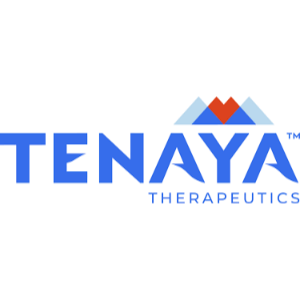Tenaya Therapeutics Presents Interim Data from MyClimb™ Natural History Study of MYBPC3-associated HCM Pediatric Patients at European Society of Cardiology Congress 2025
Rhea-AI Summary
Tenaya Therapeutics (NASDAQ: TNYA) presented interim data from MyClimb™, the largest natural history study of pediatric patients with MYBPC3-associated hypertrophic cardiomyopathy (HCM), at the European Society of Cardiology Congress 2025. The study analyzed 213 participants from 27 centers across multiple countries.
Key findings revealed that 93% of participants had nonobstructive HCM, which currently lacks approved treatments. The study identified three genetic inheritance patterns with distinct risk profiles: Homozygous patients typically died or needed heart transplant before age one, Compound Heterozygous patients showed severe symptoms with 27% requiring transplant or dying, and Heterozygous patients had later onset but still significant complications.
Importantly, Left Ventricular Mass Index (LVMI) emerged as a significant predictor of risk, with every 10-unit increase associated with a 10% higher hazard of serious events, potentially serving as a surrogate marker for future gene therapy studies.
Positive
- None.
Negative
- 93% of participants have nonobstructive HCM with no approved treatment options
- High mortality rate in Homozygous patients before age one
- Significant rate of heart failure and complications across all genetic profiles
Insights
Tenaya's MyClimb study reveals critical genetic risk factors and disease progression markers in pediatric MYBPC3-HCM, advancing potential treatment development.
Tenaya Therapeutics has presented significant interim data from their MyClimb natural history study - the largest of its kind with over 200 pediatric participants with MYBPC3-associated hypertrophic cardiomyopathy (HCM). The findings reveal 93% of participants have nonobstructive HCM, a form with no approved treatments available today.
What's particularly valuable about this data is how it stratifies patients by genetic profile, revealing distinct risk patterns. The study identified three genetic inheritance patterns with dramatically different outcomes: Homozygous patients (two truncating MYBPC3 variants) almost all died or needed heart transplants before age one; Compound Heterozygous patients were diagnosed around age 2.9 with 63% experiencing heart failure hospitalizations and 27% facing transplant or death; while Heterozygous patients were diagnosed later (median 6.5 years) with lower but still significant complications.
The identification of Left Ventricular Mass Index (LVMI) as a significant predictor of adverse events is critically important. Each
These findings address a critical knowledge gap in pediatric HCM progression and risk stratification, enabling better clinical decision-making and more targeted therapeutic development. The high percentage of nonobstructive HCM patients highlights the substantial unmet need that Tenaya's gene therapy approach aims to address.
Largest Noninterventional Natural History Study of People Under 18 with MYBPC3-associated HCM with More than 200 Participants
Genotypic Status Identified as a Significant Predictor of Risk and Left Ventricular Mass Index May Serve as a Surrogate Marker for Poor Long-Term Outcomes
SOUTH SAN FRANCISCO, Calif., Aug. 31, 2025 (GLOBE NEWSWIRE) -- Tenaya Therapeutics, Inc. (NASDAQ: TNYA), a clinical-stage biotechnology company with a mission to discover, develop and deliver potentially curative therapies that address the underlying causes of heart disease, today announced the presentation of interim data from its ongoing MyClimb™ (ClinicalTrials.gov ID: NCT05112237) natural history study of pediatric participants with MYBPC3-associated hypertrophic cardiomyopathy (HCM) at the European Society of Cardiology Congress (ESC).
“The interim data from MyClimb presented at ESC highlight the distinct risks of complications, heightened severity and rapid rate of disease progression experienced by pediatric patients with MYBPC3-associated HCM,” said Georgia Brugada, M.D., Pediatric Cardiologist, Head of Arrhythmias Unit, and Medical Consultant at SJD Barcelona Children's Hospital and an investigator for the MyClimb study. “The data emerging from MyClimb underscore the urgent need for disease-modifying approaches to the treatment of children with MYBPC3-associated HCM, as well as the importance of genetic diagnosis, genetic counseling and close monitoring in this population.”
“Data obtained from MyClimb offer actionable information for predicting those severe MYBPC3-associated HCM pediatric patients who may be at higher risk of death or severe complications, such as life-threatening ventricular arrhythmias, cardiovascular-related hospitalizations, heart failure, sudden cardiac arrest, and/or heart transplant,” said Whit Tingley, M.D., Ph.D., Tenaya’s Chief Medical Officer. “Among the new observations, we believe certain genetic profiles or higher left ventricular mass index can identify those children who are at substantially greater risk of serious potential complications, relatively rapid progression and poor long-term outcomes. These new insights into predictive risk factors can inform clinicians’ thinking on risk stratification and interventions and offer important clues for endpoints and eligibility criteria as we consider advancing genetic medicines such as TN-201 gene therapy in clinical trials for pediatric patients where there is high unmet need.”
MyClimb is believed to be the largest natural history study of those under 18 diagnosed with MYBPC3-associated HCM. As of the July 2025 cutoff for this interim readout, 213 MYBPC3-associated HCM individuals diagnosed before the age of 18 were analyzed, with retrospective data for 173 and prospective data for 42 participants available. Participants were enrolled from 27 centers across the U.S., Canada, Spain and the UK.
Key findings from MyClimb shared at ESC 2025 include:
93% of participants were classified as having the nonobstructive HCM phenotype, for which there are currently no approved treatment options.- Participants were stratified based on three genetic inheritance patterns, revealing distinct risk profiles.
- Among the Homozygous group (also referred to as biallelic; those born with two pathogenic or likely pathogenic truncating variants in MYBPC3), nearly all died or required heart transplant before age one.
- Compound Heterozygous participants (with one pathogenic or likely pathogenic truncating variant and one missense variant in MYBPC3) had a median age of diagnosis of 2.9 years of age and experienced severe cardiomyopathy with significant arrythmia burden and high prevalence of heart-failure related hospitalization (
63% ), transplant or death (27% ). - Heterozygous children (with one pathogenic or likely pathogenic variant in MYBPC3) had a median age of diagnosis of 6.5 years of age. Among these,
27% experienced heart failure-related hospitalizations and13% had arrhythmia-related symptoms.
- Initial modeling suggests Left Ventricular Mass Index (LVMI) was found to be a significant predictor of risk in compound heterozygous and heterozygous groups, with every 10-unit (g/m2) increase associated with a
10% higher hazard of a serious event. These findings indicate LVMI may serve as an appropriate surrogate marker to evaluate the early effectiveness of gene therapy in potential future pivotal studies.
The poster, titled “Interim results from MyClimb, a natural history study of pediatric MYBPC3-associated hypertrophic cardiomyopathy (HCM)” is being presented as a moderated e-poster by Dr. Brugada at ESC 2025 today during the Pediatric cardiomyopathy session and is available in the “Our Science” section of Tenaya’s website.
About MyClimb and Pediatric MYBPC3-Associated HCM
MyClimb is a retrospective and prospective natural history study of MYBPC3-associated HCM participants diagnosed before the age of 18. The study was initiated in 2021 to characterize the association between genotype, structural, and functional cardiac measures over time. To date, MyClimb has enrolled more than 200 individuals at 29 sites worldwide and is believed to be the largest study of pediatric individuals with MYBPC3-associated HCM ever conducted.
Mutations in MYBPC3, the gene that encodes cardiac myosin-binding protein C, are among the most common genetic causes of HCM. MYBPC3-associated pediatric-onset HCM is estimated to comprise ~
About TN-201 Gene Therapy
TN-201 is an adeno-associated virus serotype 9 (AAV9)-based gene therapy designed to deliver a working MYBPC3 gene to heart muscle cells via a single intravenous infusion, increasing MyBP-C protein levels to address the underlying cause of MYBPC3-associated HCM. The MyBP-C protein plays a crucial role in regulating the heart’s contractility. Encouraging initial data from the first three patients to receive TN-201 at the 3E13 vg/kg dose level (Cohort 1) were presented at the American College of Cardiology meeting Tenaya intends to report longer-term follow-up data from Cohort 1 and initial data from Cohort 2 in the fourth quarter of 2025. The U.S. Food and Drug Administration has granted TN-201 Fast Track, Orphan Drug and Rare Pediatric Drug Designations. TN-201 has also received orphan medicinal product designation from the European Commission.
About Tenaya Therapeutics
Tenaya Therapeutics is a clinical-stage biotechnology company committed to a bold mission: to discover, develop and deliver potentially curative therapies that address the underlying drivers of heart disease. Tenaya’s pipeline includes clinical-stage candidates TN-201, a gene therapy for MYBPC3-associated hypertrophic cardiomyopathy (HCM) and TN-401, a gene therapy for PKP2-associated arrhythmogenic right ventricular cardiomyopathy (ARVC). Tenaya has employed a suite of integrated internal capabilities, including modality agnostic target validation, capsid engineering and manufacturing, to generate a portfolio of novel medicines based on genetic insights, including TN-301, a clinical-stage small molecule HDAC6 inhibitor for the potential treatment of heart failure and related cardio/muscular disease, and multiple early-stage programs in preclinical development aimed at the treatment of both rare genetic disorders and more prevalent heart conditions. For more information, visit www.tenayatherapeutics.com.
Forward Looking Statements
This press release contains forward-looking statements as that term is defined in Section 27A of the Securities Act of 1933 and Section 21E of the Securities Exchange Act of 1934. Statements in this press release that are not purely historical are forward-looking statements. Words such as “believe,” “may,” and similar expressions are intended to identify forward-looking statements. Such forward-looking statements include, among other things, the clinical, therapeutic and commercial potential of, and expectations regarding TN-201; the potential for MyClimb data to help decipher endpoints and eligibility criteria for TN-201 in clinical trials for pediatric patients; the planned timing to report interim results from MyClimb; and statements made by Tenaya’s Chief Medical Officer. The forward-looking statements contained herein are based upon Tenaya’s current expectations and involve assumptions that may never materialize or may prove to be incorrect. These forward-looking statements are neither promises nor guarantees and are subject to a variety of risks and uncertainties, including but not limited to: the potential failure of TN-201 to demonstrate safety and/or efficacy in clinical testing; actions and decisions of regulatory agencies; availability of MyClimb results at the referenced time; risks associated with the process of discovering, developing and commercializing drugs that are safe and effective for use as human therapeutics and operating as an early stage company; Tenaya’s continuing compliance with applicable legal and regulatory requirements; Tenaya’s ability to raise any additional funding it will need to continue to pursue its product development plans; Tenaya’s reliance on third parties; Tenaya’s manufacturing, commercialization and marketing capabilities and strategy; the loss of key scientific or management personnel; competition in the industry in which Tenaya operates; Tenaya’s ability to obtain and maintain intellectual property protection for its product candidates; general economic and market conditions; and other risks. Information regarding the foregoing and additional risks may be found in the section entitled “Risk Factors” in documents that Tenaya files from time to time with the Securities and Exchange Commission. These forward-looking statements are made as of the date of this press release, and Tenaya assumes no obligation to update or revise any forward-looking statements, whether as a result of new information, future events or otherwise, except as required by law.
Tenaya Contact
Michelle Corral
VP, Corporate Communications and Investor Relations
Tenaya Therapeutics
IR@TenayaThera.com
Investors
Anne-Marie Fields
Precision AQ
annmarie.fields@precisionaq.com
Media
Wendy Ryan
Ten Bridge Communications
wendy@tenbridgecommunications.com








